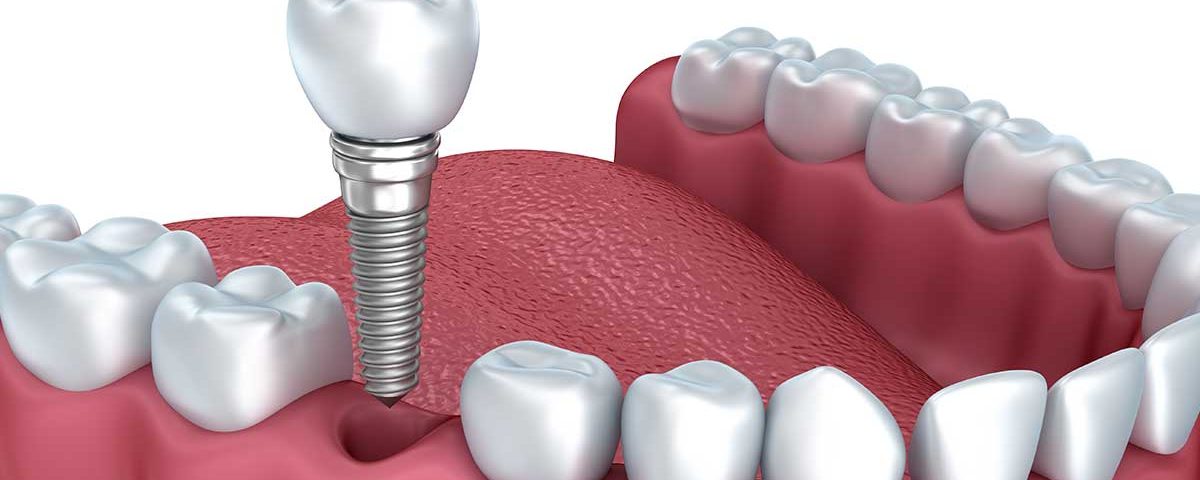Dental Implants: Everything You Need To Know
Are Dental Implants on your mind? Do you want to know everything about Dental Implants? Are you still confused about the difference between dentures and dental implants? Then this Dental Implants: The Comprehensive Guide is for you. but before we move ahead let’s answer a simple question.
Are dentures the only way to replace all the missing teeth?
and the answer is Definitely No!
If you are planning to go for Dental Implants. Then this Dental Implants: The Comprehensive Guide will help you a lot in taking the major decision of your life. Read it and decide for yourself.
Let’s know a little bit about the difference between dentures and dental implants. Though dentures are very common these certainly have drawbacks.
There are many advantages of implants over dentures.
Since dentures are temporary, these tend to shift or slide while talking or smiling causing unnecessary embarrassment.
While implants are fixed therefore no problem while talking, smiling, or eating.
Implants can rather act as natural teeth. No special ways of cleaning save the extra effort. Just simple brushing is enough.
So with good care, these implants can last the rest of our life.
There is always a better option available nowadays and that can be dental implants.
Dental Implants: The Comprehensive Guide
Dental implants are an increasingly popular option for people who have lost teeth due to injury, disease, or decay. They are a permanent solution that can restore your smile and improve your oral health. In this blog post, we will discuss everything you need to know about dental implants.
What are Dental Implants?
Dental implants are artificial teeth that are designed to replace missing teeth. They are typically made of titanium and are surgically implanted into the jawbone. Once the implant has fused with the bone, a replacement tooth is attached to the implant.
Types of Dental Implants
There are two main types of dental implants: endosteal implants and subperiosteal implants.
Endosteal implants are the most common type of implant. They are surgically placed into the jawbone and are typically used to replace single or multiple missing teeth. Endosteal implants can also be used to anchor dentures in place.
Subperiosteal implants are used when the patient does not have enough bone density to support an endosteal implant. They are placed under the gum but above the jawbone.
The Dental Implant Procedure
The dental implant procedure typically involves several steps. The first step is a consultation with a dental implant specialist who will evaluate your oral health and determine if you are a good candidate for the procedure.
If you are a good candidate, the next step is the implant surgery. During this procedure, the implant is surgically placed into the jawbone. After the surgery, you will need to allow time for the implant to fuse with the bone. This process is called osseointegration and can take several months.
Once the implant has fused with the bone, the replacement tooth can be attached to the implant. The replacement tooth is typically a crown that is custom-made to match the size and shape of your natural teeth.
Benefits of Dental Implants
There are many benefits to dental implants, including:
1) Improved oral health: Dental implants can help prevent bone loss and gum recession, which can lead to additional tooth loss.
2) Improved appearance: Dental implants look and feel like natural teeth, which can improve your smile and boost your confidence.
3) Improved speech: Missing teeth can cause speech problems. Dental implants can help improve your speech by providing a stable base for your replacement teeth.
4) Improved comfort: Dental implants are designed to be a permanent solution, which means you won’t have to worry about removing them for cleaning or sleeping.
5) Improved eating: Missing teeth can make it difficult to eat certain foods. Dental implants can help improve your ability to chew and enjoy a wider variety of foods.
Risks and complications
Like any surgical procedure, there are risks and complications associated with dental implants. These can include infection, nerve damage, and implant failure. However, these risks are relatively low, and the vast majority of dental implant procedures are successful.
Cost of Dental Implants
The cost of dental implants can vary depending on several factors, including the number of implants needed and the location of the dental implant specialist. However, dental implants are typically more expensive than other tooth replacement options, such as dentures or bridges. Despite the cost, many people find that dental implants are worth the investment due to their long-term benefits.
Conclusion
Dental implants are an excellent option for people who have lost teeth and want a permanent solution. They offer many benefits, including improved oral health, improved appearance, and improved eating and speaking ability. While there are risks and costs associated with dental implants, many people find that the benefits outweigh the risks. If you are considering dental implants, be sure to consult with a dental implant specialist to determine if you are a good candidate for the procedure.
At Jain dental hospital, all Dental implants are still being done under the supervision of Dr. Arpan Jain (Dental Implantologist) having experience of more than 20 years. He still conducts all implants by himself. You can read more about Dr. Arpan Jain on Practo.com

